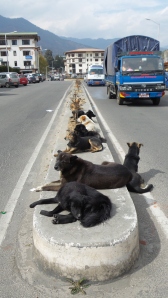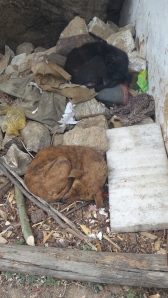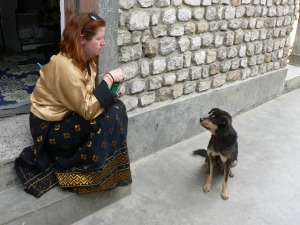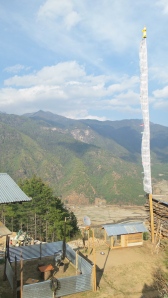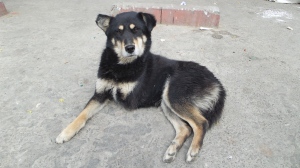A couple of daze ago, when I got to work / school I learnt that there was a boy from the high school next door missing. His school friends and the police were out looking for him.
Last year there was a similar disappearance. A boy went missing and was eventually found ‘expired’. He had hung himself in a tree. It was the same tree that another boy had hung himself in the year before. So as you can imagine the whole community was concerned and perhaps thinking that there would be bad news by the end of the day.
All of these boys had been in their final years of high school. As we know, many teens around the world commit suicide when it comes time for their final exams. They feel pressure from their family, their teachers and competition from their peers. The stress of their studies can lead to depression which sometimes drives them to suicide.
In Bhutan there is a culture of expecting students to do exceedingly well. When you ask most students what they want to do when they grow up they say either a doctor or an engineer. This really gets under my skin as there is tough competition for engineering scholarships which means most want-to-be engineers will miss out. Most successful candidates for scholarships go to universities overseas in countries like Australia or America for instance. Not only is this a great opportunity for them to study abroad it is also a great opportunity for them to make money. Studying overseas on a student visa also allows you to work limited hours, for example 20 hours a week in Australia, or more if you find cash-in-hand work. This is great money if you compare the hourly wages to the Bhutanese local wages. (I will write about the countries obsession to earn money overseas another time.) So there is pressure from families not just to study hard, get good marks and go to uni; there is added pressure to earn hard cash while you are at it.
Recently I have been in meetings with teachers and students to see how we can assist students with Learning Difficulties and Disabilities to improve their marks, and prospects. One boy, who has repeated {up to} three times, demonstrates behaviour problems, lacks concentration and interrupts class and got less than15% in his monthly examinations. As a team we thought that he didn’t want to be at school. We thought he wanted to join the army. We were thinking we should plan with his family to transition him to another post school setting until I asked the question: “What do you want to do when you leave school?”. His answer: “A Doctor.”!
Now, clearly this boy lacks the attitude and brain power to be a doctor. He isn’t able to apply himself to his subjects and clearly doesn’t have the study skills to get himself past the line to receive the marks you need for a doctor. The thing is, this is all too common. When I talk to these kids about having a second or third option they never have one. In their eyes it is a doctor or engineer or, well, there is not an “or”. Sometimes when I ask the kids what an engineer does they really don’t know. Which brings me to the point: What happens when it all comes crashing down in the final year and they find they haven’t got the skills to be a doctor or engineer?
I have spoken to a neighbouring school’s principal about students’ higher than usual expectations on themselves. He said it is a difficult situation. The schools are starting to introduce careers counselling but the teachers are mostly untrained to cope with giving this advice. He said there are huge issues with the children not realising what it takes to be a doctor or engineer. Most of the time they haven’t explored other pathways or careers. They are just going with the trends or what their parents want them to be.
In Bhutan people are reluctant to take up blue collar jobs such as building roads, apartments or houses. They view this as low skilled and low paid jobs. Indian workers are brought into the country for this. While some Bhutanese may be coordinating the construction the majority of the labour work force are Indian. The workers are looked down upon, and are not assimilated into the Bhutanese community. The Indian workers, who have been building the road to my community for years, live in a shanti-like town several kilometres out of the village.
My father was a mechanic and my mother was a book-keeper. We were a typical middle class family. We lived in the suburbs, had two cars and a nice house. We had enough money to go on family holidays locally and overseas at least once a year and I even had the opportunity to go to a private school for a few years. After school I took the path to become a teacher as I knew teaching was a part of me and I would end up with a secure job that would take me overseas to see the world. I see nothing wrong with any of my family’s career paths, but a lot of Bhutanese see these jobs (mechanic, teacher) as low-grade jobs.
A shop keeper near me who has three sons was disgusted when I suggested a career like a mechanic for her son, she would much prefer him to be an engineer! Teachers are not well paid and most start their career in isolated villages. So people would prefer to find a better, or more glamorous job, than a boring teacher. Thankfully there are still people taking up the teaching path, but still not enough, as some teachers are recruited from India, especially maths and science teachers.
So it appears there is a lack of expertise in some fields such as teaching and labour jobs, yet Bhutan has an extraordinarily high unemployment rate – depending on what figures you watch or how you calculate it. The general unemployment rate is around 4% but the youth unemployment is up to 12%. Even the number of farmers is declining. There are many people leaving their farm lands to come to make it rich in the city (like most countries in the world) which means food is imported from India. Many people who head to the cities end up, you guessed it: unemployed. This always makes me wonder – why are they bringing in the labour force and goods from India? Has the Bhutanese attitude of reaching for high paying, highly skilled careers gone too far?
Along with a high youth unemployment rate, Bhutan has one of the highest suicide rates in the world. It is currently ranked number 5 in the Asia region and around 20th in the world. This is linked to high unemployment, mental illness and lack of family ties. I can’t help but wonder if it is also due to the exceedingly high expectations that youth feel to gain good marks to become that doctor or engineer? The two suicides in my community in the past two years tend to tell me it may be.
Thankfully, this time around, the community didn’t come face to face with another youth suicide before exam time. Instead this young man had taken himself off to the temple for the day. Thank Buddha or God or the Universe that he went to find solitude there, instead of hanging in a tree.
———————————————————-
Post note: I know that this post could be seen as quite controversial so I do appreciate constructive comments, insights on the Bhutanese culture and suggestions. I also welcome solutions to the problems that I have presented if you feel you know any.
Cheers x


